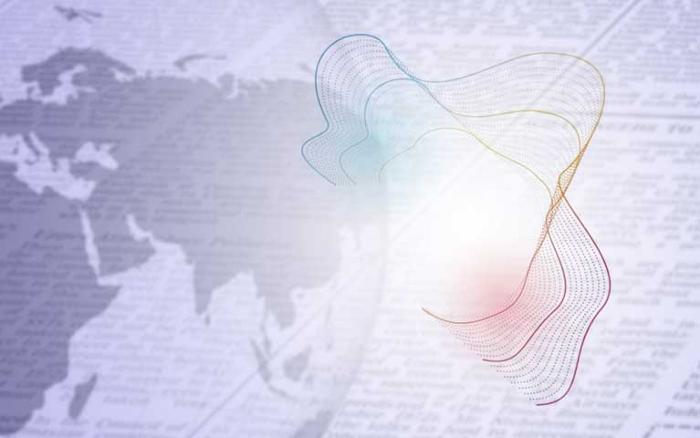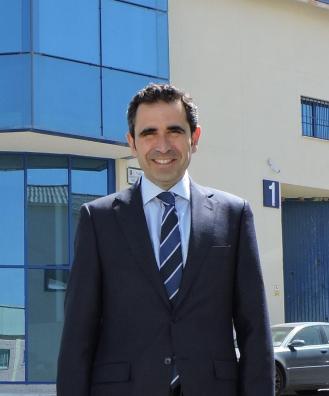

José María Raya, General Director of Intarcon: "Our technology can store the Covid-19 vaccine at -80°"
Cordoba-based company INTARCON is the leading Spanish manufacturer of compact industrial refrigeration and cooling equipment. It has announced that it has the technological capacity to produce equipment to maintain the cold chain at below -80°, an essential requirement for distributing the Covid-19 vaccine. INTARCON's General Manager, José María Raya, explains to C&R News all the details.
INTARCON is part of the KEYTER-INTARCON-GENAQ industrial group. It has announced that it is ready to supply the equipment to conserve vaccines such as the one being developed by Pfizer. Spain’s Ministry of Health recently announced the purchase of 20 million doses of that vaccine. What equipment is needed? How long would it take to develop it?
Our product development cycle has three phases. First, we develop the technology; second, we design and develop prototypes bearing in mind the different applications our clients may require; and the third, we produce the designs at industrial scale. And to make equipment to maintain the cold chain below -80° we’ve already developed the technology. Now we’re fully engaged in several projects to produce equipment to match real needs as soon as possible.
Are you already in contact with central or regional government about it?
We haven’t had any specific enquiries from them yet, but we’ve already had orders from customers and distributors, both from Spain and abroad. For example, from the United Kingdom and Germany. We understand that we’re still at an early stage for this type of project and that it will develop as requirements become more precise and the logistics chain better understands its needs. In Spain, the distribution centres where the vaccines will arrive will need storage equipment to keep them at -80° before redistribution to different pharmaceutical hubs around the country.
What would be the procedure to get the vaccines out to the population as quickly as possible?
Although we still don’t know the details of the process that Pfizer or other manufacturers have in mind, it’s reasonable to assume that they would have a logistics process to ship the vaccine from the manufacturing plants to intermediate distribution warehouses. Those warehouses would supply either hospitals or, in Spain, the pharmaceutical cooperatives, which usually have large regional distribution warehouses. Intermediate warehouses would need to be equipped with freezers to keep the vaccines at ‑80°, while other hubs such as hospitals, that already have them, would require more capacity.
What about the refrigerants that INTARCON would use to keep the vaccines at -80°. Are they environmentally friendly?
Yes. The refrigerants used in the past to maintain these temperatures were not environmentally sustainable. So, we would preserve the vaccine using natural, ecologically friendly refrigerants, that are much less harmful to the environment and comply with European regulations, instead of the fluorinated refrigerants which were harmful greenhouse gases. This has been a technological challenge, but we’ve overcome it in a very satisfactory way.
What other experiences does your company have in the field of medical and hospital logistics?
So far, INTARCON has supplied equipment for the preservation of medicines and vaccines in Spain’s leading hospitals, such as the La Paz University Hospital in Madrid, the Bellvitge University Hospital in Hospitalet de Llobregat, or the Vinaròs Regional Hospital in Castellón. We also supply refrigeration products for military and civil pharmacies, as well as chemical industry producers of generic active ingredients for pharmaceuticals.
What other solutions is your group developing to fight Covid-19?
INTARCON has developed the IntarSanit solution for air sterilisation and purification in food handling rooms, industrial kitchens, clean rooms, and other applications. It helps combat the transmission of viruses and bacteria in the work area by filtering and sterilising air and supplying fresh air. It also ensures the minimum ventilation flow around the work area with fresh, filtered dehumidified air, while extracting the stale air. It’s easy to integrate into an installation and causes only minimum cold losses because it has double heat recovery from exhaust air and a high-efficiency natural refrigerant.
The KEYTER-INTARCON-GENAQ industrial group has also developed other solutions for the fight against Covid-19. In particular, it also markets other air and water purification solutions. On the one hand, KEYTER has developed AirSanit, a technology platform for industrial production of the UTAPH (Air Treatment, Purification and Hygiene Unit). This proprietary technology can eliminate all viruses (including Covid-19), bacteria, fungi, spores, and other pathogens in aerosol suspension that accumulate in enclosed areas with little or no natural ventilation, such as schools, care homes, offices, restaurants, shops, health centres and hospitals, among others.
Since 2008, GENAQ has been investing in research, development and industrial production of atmospheric water generators. It uses its own technology to solve drinking water-related problems with a process that replicates rainfall. GENAQ’s atmospheric water generators take outside air, filter it and extract its moisture. Water is condensed, then subjected to a specialised treatment to produce the highest quality of water at the lowest energy cost.





